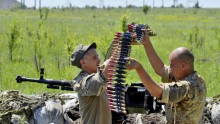Den’s record 13th Summer School of Journalism is over! Last month students from various nooks of Ukraine met a lot of well-known public, political, and cultural figures as part of an intensive intellectual course. But the last guest of Den was special indeed. The students saw Yevhen Marchuk, a well-known Ukrainian statesman who has considerable experience under his belt: he was the first chairman of the Security Service of Ukraine (SBU), minister of defense, prime minister, and secretary of the National Security and Defense Council (NSDC). He is now promoting Ukraine’s cooperation with NATO and favors a referendum on the accession to this organization. This year Mr. Marchuk has also joined the critically important Minsk negotiations, where he heads the security subgroup.
Having the inside knowledge of the governmental system, Yevhen Marchuk willingly shared his experience and views on the ATO situation and international politics with the “summer schoolchildren.” The students were interested, above all, in the details of the Minsk process which, albeit severely criticized, remains the only way to resolve the Donbas conflict. What Mr. Marchuk said about the Minsk agreements is exclusive information, for nobody has so far explained in so much detail the essence of negotiations in the capital of Belarus. As this material was going to press, the Donbas situation was aggravated to an extreme – it is reported daily from the ATO front line that militants have opened fire dozens of times, killing and wounding Ukrainian soldiers. This only confirms the topicality and importance of what Mr. Marchuk said at the Den meeting. For what is going on behind the scenes of the Minsk talks has always an impact on the military-political situation in Ukraine. The meeting with Mr. Marchuk focused on the 30-km buffer zone, demilitarization of the territory in and around Shyrokyne, the role of an OSCE mission in eastern Ukraine, details of the Minsk agreements, Ukraine’s cooperation with NATO, and many other things.
Dmytro PLAKHTA, Ivan Franko Lviv National University:
“You recently said there were some ‘positive’ signals from Minsk, but the Minsk negotiations’ format is still under criticism. How can we possibly go on negotiating if we are trying to meet them halfway but they are shooting at us in response? Will the 30-kilometer buffer zone become a trap in this case? What also arouses concern is the situation in the strategically important areas of Shyrokyne. No wonder Mariupol residents are protesting against demilitarization of this populated area.”
Yevhen MARCHUK: “Today, our governmental institutions are very sluggishly explaining their actions, especially the decision-making motivation. For this reason, unfortunately, journalists often find themselves in a situation when they involuntarily whip up unwarranted tension and arouse fears in society. An example of this is the proposed demilitarization of the Shyrokyne area and the establishment of a so-called 30-km buffer zone. Nobody has so far clearly explained that volunteer battalions have performed their task with credit at a certain stage, deserve public and governmental gratitude, and should have some rest now. The positions of our military around Shyrokyne have remained almost unchanged lately under heavy enemy fire. There was even no need of artillery survey to find the exact position data. The Ukrainian military-political command decided to replace them with well-trained regular military units, namely, the best marines. Besides, there is also a ‘fresh’ Ground Forces unit. Ukrainian engineer troops have also done a good job in this area. President Petro Poroshenko has clearly explained to Mariupol residents that any weakening of Mariupol’s defense is out of the question.
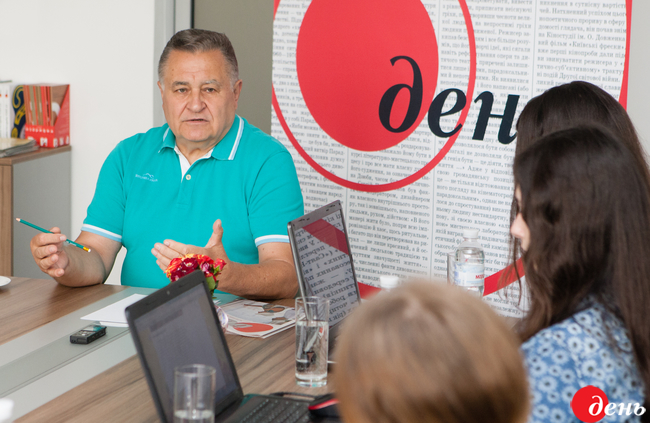
“Now about the Minsk negotiations. What was agreed upon? It is planned that each of the two sides will simultaneously withdraw heavy weapons by 15 kilometers, forming as a result a 30-km safety corridor. Ukraine is to pull back its heavy weapons 15 kilometers from the current so-called line of contact, in fact the front line, while the opposite side is to pull back its heavy weapons not from the current line of contact but from the line demarcated by the Minsk Protocol as long ago as September 19, 2014. But this is a different line farther to the east. So, the opposite side is in fact to withdraw its heavy weapons much more than 15 kilometers from the current line of contact. The exact coordinates of these lines are based on the national survey grid and were agreed upon in the course of difficult debates during the last three rounds of the Minsk negotiations.
“It is important that withdrawal should be carried out in three stages: first, the signing of the agreement is to be followed by two days of complete ceasefire along the entire line of contact and a proper verification and written confirmation of this by the OSCE Special Monitoring Mission (SMM). In other words, it is only after the two days of ceasefire that tanks are to begin to be simultaneously pulled back along the agreed-upon routes to the predetermined places under complete supervision of the OSCE SMM. The withdrawal of tanks is to be completed in three days’ time.
“Artillery pieces of a caliber fewer than 100 mm will begin to be withdrawn ten days (!) after the OSCE SMM has received the latest written message from the Ukrainian Armed Forces and the armed formations of the ‘DNR’ and the ‘LNR’ about the withdrawal of tanks to the designated areas and has confirmed in writing that the tanks are located there and that these areas are under a 24-hour observation of the OSCE SMM. It is necessary to observe silence in this period, i.e., there should be no shelling. Besides, a full inventory is to be made of the withdrawn equipment, with the serial numbers of every piece to be recorded to enable the OSCE SMM to exercise adequate supervision.
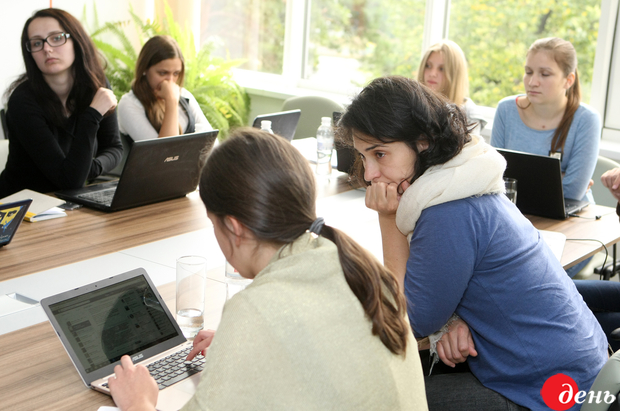
“Then mortars of a caliber up to 120 mm inclusive are to be pulled back in the same way and period of time, i.e., in fact within two weeks. The whole process of heavy weapon withdrawal is to be completed within 50 days according to a schedule that is an integral part of the draft agreement. Relatively long time gaps between the stages are necessary to enable the OSCE SMM to exercise reliable round-the-clock supervision over the withdrawal and storage of heavy weapons.
“Fifteen main and four reserve OSCE SMM round-the-clock observation points are to be set up for the sake of strict control. It is also envisaged that, if one of the sides begins systemic fire from any kind of weapons during the withdrawal of equipment, the whole process of withdrawal is suspended for one day until the OSCE SMM observers clear up the situation and both sides make a relevant decision.
“The draft agreement sets out that the two sides will provide OSCE SMM representatives with unlimited access to the storage places of the withdrawn equipment and guarantee them full safety. There are a number of other details where a compromise seems to be possible. This is a concise and schematic account of what the two sides have almost agreed upon.
“But there still is a series of major disagreements. As militants have concentrated a large amount of heavy offensive equipment and sharply increased the strength of their personnel in front of some important Ukrainian positions, Ukraine can only pull back its heavy weapons when the whole process of heavy weapons withdrawal is completed along the entire line of contact. We would do so in a shortcut way within 10 days. And since this accounts for a mere 11-12 percent of the entire contact line’s, i.e. the front line’s, length, this by no means hinders the formation of a 30-km safety zone – it will only prolong the process by as few as 10 days.
“The Russian side categorically rejected this position of Ukraine and insisted that we should withdraw our heavy weapons from the abovementioned and all the other areas at the same time. Further aggravation of the Donbas situation after the latest Minsk negotiations, a sharp rise in the shelling of Ukrainian positions by militants, an attempted breakthrough near Starohnativka, and other more and more frequent provocations have proved that Ukraine’s military leadership made a right decision on this matter. Ukraine cannot withdraw its weapons from the most dangerous areas unless the OSCE SMM confirms and monitors round the clock the withdrawal of similar weapons by militants to the designated positions.
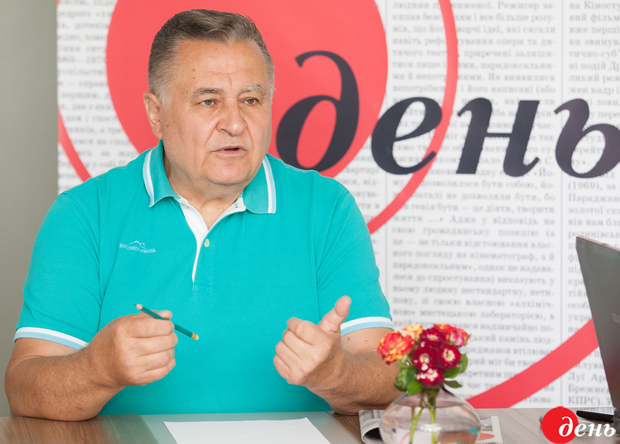
“There are also a number of other differences, but it is a different subject.
“Naturally, for the agreements, if they are achieved, to be fulfilled in good faith, it will be necessary to solve the problem of an adequate round-the-clock OSCE SMM supervision over the withdrawal and storage of the entire heavy equipment. Of course, this requires a larger number of OSCE SMM observers. It should be also taken into account that it is now only the question of an overall ceasefire and the withdrawal of heavy weapons, not of all the troops. The troops will so far remain on their positions. Their withdrawal will be the next stage.
“But it is practically impossible to solve a very large number of other key problems in this region unless the current stage, i.e. the overall ceasefire and withdrawal of the heavy weapons of all calibers, is passed.
“And the crucial point is whether there is a reliable guarantee that Russia, its mercenaries and militants, will carry out the agreement if it is reached. There is no final answer to this question so far. We know only too well that the Minsk 1 and Minsk 2 written agreements reached by the heads of state and government of the ‘Normandy Four’ member states have been brazenly and repeatedly violated.
“Russia is pursuing a strategic goal: to form a longtime burning enclave on the territory of Ukraine, through which it will blackmail our country into joining neither the EU nor NATO. Strategically, Russia wants to cause the Ukrainian leadership to enter into direct negotiations of all levels with the bosses of the so-called ‘DNR’ and “LNR’ and then finally say that it is just an internal Ukrainian conflict.
“The Russian Federation has not only filled the occupied territories with a large number of heavy offensive armaments, but also brought in its properly disguised regular units. Some sources say there are more tanks in this region than in Germany and the UK.

“The so-called ‘DNR’ and ‘LNR’ already have ‘their own’ media which are unmistakably run by Russian managers. They have formed almost all the institutions of power. No matter how ludicrous they look, they exist. We know what the leaders of the so-called ‘DNR’ and ‘LNR’ say about the elections to be held in October this year. These statements and the probability of their implementation are in fact blocking further settlement of the Donbas situation. In other words, all of our governmental bodies have hard work to do – for more than a year in my view. But further settlement of the situation in the region is impossible without a full and comprehensive ceasefire and withdrawal of heavy weapons of all calibers and, later, of the troops. So, we must make an all-out effort to first achieve at least this.”
Marta FRANCHUK, National University of Kyiv Mohyla Academy:
“The OSCE mission’s performance has often come under criticism, for OSCE is supposed to watch both sides, but it fails to do so. How would you characterize the performance of this special monitoring mission in Ukraine? Will OSCE change its line of behavior, as it has sent a new representative, Martin Sajdik, to Ukraine?”
Ye.M.: “It is very important for Ukraine that European countries and the US have credible information on the current events in the Donbas. OSCE is supposed to help both sides to settle the conflict, but its representatives have no right to interfere into political or military life. This special mission abides by a very strict rule: if there is even a slight danger to its personnel in the line of duty, the group leader must in no way expose the observers to this danger. In principle, this is right. Now let us imagine that there is no OSCE mission in Ukraine, particularly in the Donbas – in other words, there is no third party, whatever it may be. We are telling the world one thing, Russia is saying another thing, and the ‘DNR’ and the ‘LNR’ a third thing. It would be wrong to think that Europe or even the UN SC will believe us alone.
“There are grounds for criticism in some cases, especially about the OSCE SMM in Ukraine, for it includes some Russians because Russia in a member of this organization. OSCE is performing its mission in Ukraine as much as its real possibilities allow, and I would not share the current negative wave of complaints about them. It is not a peacekeeping contingent. God willing, it should continue working within the limits of what it can. And the new OSCE representative in the Trilateral Contact Group, Mr. Sajdik, knows very well the whole background of our problem. But it is not so easy for him and the OSCE mission leader in Ukraine, Ertugrul Apakan, to maintain a trilateral format because the Russian side very often stages demarches, trying hard to push through the idea of including the ‘DNR’ and the ‘LNR’ into the Trilateral Contact Group and the working groups in order to produce a quintuple or at least a ‘three plus two’ format.”
Oksana HRUBA, Ivan Franko Lviv National University:
“You were one of the first to call for imposing martial law on the territory of Ukraine. This was not done, and the ATO is still going on. It is sort of misplaced idea. To what extent is this phenomenon dangerous?”
Ye.M.: “At first, when one could see all the signs of Russian involvement in the conflict, I favored a temporary regime of martial law in these two regions. Officially, the president proposes and parliament approves the imposition of martial law. It is valid for two months, but the president can reduce this term. At the very outset, martial law in the problem regions would have allowed establishing control over the borders in a relatively short time and then gradually neutralizing the situation via a number of political and other non-military mechanisms.
“Those who are now talking about the necessity of imposing martial law are sure not to have read this legislative clause. There are some things, in addition to mobilization of the entire male population, which nobody is thinking of. When martial law is imposed even in some regions only, this country will have to declare [Russia] the aggressor, and in this case any state that helps Ukraine becomes its ally and, therefore, the enemy of Russia. This will have certain international juridical consequences.
“As we know, there are some tentative considerations for the imposition of martial law. The president has said more than once that once Russia ‘makes a move,’ he will immediately affix his signature and parliament will assemble even at night to pass the law. I hope things won’t go that far, although we must be prepared for any eventuality in this world. It is a difficult question, and it will take a lot of time to thoroughly analyze it.”
Daria DIADENKO, Illia Mechnikov Odesa National University:
“You commented in Facebook on a survey conducted by a Polish journalist: ‘Giving up the illusory ideas of today’s world is one of the most important home assignments.’ After the Maidan, society aspired for Europe and harbored the illusion that the West would come, help, and decide on everything instead of us. Do politicians understand the West well? And what have they done for society to be aware of this situation and behave accordingly?”
Ye.M.: “Our society, in particular the media, has created a lot of illusions, including some dangerous ones. We should not simplify Putin and the entire Russian machine. This team has been together for 15 years. The Russian intelligence and analysis machine is one of the strongest in the world. Putin’s team is armed with not only nuclear weapons, but also forecast technologies and such information outlets as Russia Today, Life News, etc. It is not in vain that they invested hundreds of millions of dollars in this.
“In other words, there was at first an illusion, a myth of sorts that Russia was so shortsighted and sanctions would stifle it. But we can see this is not the case. This illusion visited even the upper echelons of our government. Some experts, who know Russia very well, and I had to come to the Acting President Turchynov and the NSDC Secretary Parubii and try to persuade them that the situation was very serious and they were to take decisive and adequate steps.
“A considerable part of society, including the media, has formed a multicolored myth that the whole world has nothing else to do but deal with us. The Budapest Memorandum created a lot of such illusions, but it was clear to experts that it did not work. I came across this in the fall of 2003, when we were very close to a military conflict with Russia. There was also an illusion that the Budapest Memorandum will work. We were told that Russia was also a signer of this document. Another illusion was that the Budapest Memorandum could be transformed into a binding international agreement.
“Besides, we think today that Europe must understand that Ukraine is defending it on the eastern front. Strategically, it is right. But when, say, a Portuguese politician awakens in the morning, he does not think about how to help Ukraine. All the more so that Europe has problems of its own – for example, the Greece crisis or Britain’s intention to withdraw from the EU.
“Russia is also working rather actively in Europe, and it has managed to some extent to water down European consolidation about the Ukrainian-Russian conflict in the Donbas. Moreover, Putin is not in a hurry. Ms. Merkel may or may not be reelected for the next term, and the same applies to Mr. Hollande. Barack Obama is sure not to be reelected as US president, but he would like a representative of his party to assume this office. In other words, they are not eternal, while Putin will be the president for as long as he wants to. This is the difference. Moreover, it may take Moscow one day or night to make a most radical decision, whereas all European democratic decision-making procedures are long in time. It should be taken into account that the EU or NATO means 28 countries which have to coordinate making difficult home- or foreign-policy decisions, while Putin does not have this kind of problems.
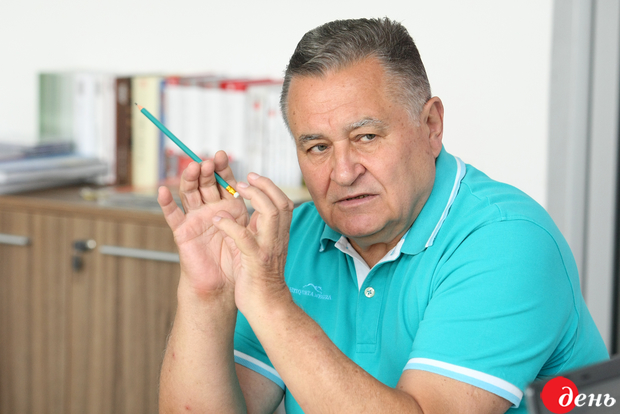
“We should also take into account that sanctions also affect the European countries – they are already suffering billions-euro-worth losses and see growing unemployment. This is why politicians are facing very intense pressure on the part of big business. As a rule, it is big-business corporations that are in contact with Russia. By annexing Crimea, Russia has considerably improved its strategic position in Europe, for it came much closer to NATO’s south-eastern flank. Now the Western political elite are slowly becoming aware of what happened in Europe.
“Mr. Stoltenberg, NATO Secretary General, said a few weeks ago that NATO is an alliance that guarantees security to all of its members. For this reason, the admission to NATO of any country that diminishes this security is practically impossible, for this would run counter to the very sense of this alliance – we have united in order to be safe. Ukraine is at war with Russia, it does not control 400 kilometers of its border, and Russian armed forces are on its territory. Does this improve in any way the security of NATO member states?
“The US is a different case – its economy is not so closely integrated with that of Russia. The US is a global strategic-level player which is well aware of Europe easing its pressure on Russia. The latter is unable to water down the US position, as it is watering down European consolidation. But the US is not a charitable organization but a worldwide giant that pursues a global policy. It is a very reliable, albeit very tough, partner, and nothing poses a threat to it in the Donbas. But, for Ukraine, this bloodstained battlefield may become fatal. Our political elite must understand that the US is today the most powerful and effective partner in the world. But if we fail to eradicate corruption in the state, the US may change its attitude to Ukraine.
“I was astonished when parliament was voting on referring draft Constitutional changes to the Constitutional Court. What pleasantly surprised me was a bold ‘for’ vote by the young and brilliant politician Hanna Hopko, when the entire faction decided to vote ‘against.’ Victoria Nuland, quite an influential person in US politics, was present in parliament, and many thought that she came to pressure MPs. But I was 100 percent sure that she came to parliament to watch a critical vote. For we have a parliamentary-presidential republic, not the other way round. I don’t think she got a positive impression, but it is good that the vote was positive.
“We must understand a simple formula: we should mainly rely on our own consolidation and boost our strength. We must also decide clearly who our chief partner in this face-off is and then pursue our policies in a very judicious, skilful, and farsighted way.”
Iryna STELMAKH, Ivan Franko Lviv National University:
“At the end of the past year you were appointed head of the SBU Secretariat for Cooperation with NATO. As you rather often take part in informal meetings with NATO representatives, what do you think of the current situation with the North Atlantic Alliance and our prospects for the next five years?”
Ye.M.: “Today, the state is making no concerted efforts to organize target-oriented and fruitful cooperation with NATO – at least to be given a Membership Action Plan (MAP). The Cabinet has not even a vice-premier in charge of the defense complex and cooperation with NATO, while the president cannot coordinate everything personally. The North Atlantic Alliance is 28 heads of government who are trying to find out whether Ukraine really intends to get a MAP, i.e., sort of a preparatory course before admission. Much to our regret, we do not have this ‘optional course.’ There is some work in progress, but, in spite of a Russian threat, there are no serious signs in sight that Ukraine is setting itself this goal.

“Therefore, the first thing to do is to organize well-coordinated work aimed at NATO membership through a governmental mechanism. The problem is that society has not been aware in the past few years of the necessity to join this organization – in other words, there has been no explanation or sort of propaganda in the good sense of the word. For this reason, my colleagues Leonid Kravchuk, Dmytro Pavlychko, Yurii Shcherbak, Volodymyr Vasylenko, Ivan Zaiats, Volodymyr Ohryzko, and I – the people who know what NATO is – have come up with an idea to hold a national referendum on joining NATO in the future. Today’s statistics about the people who understand this necessity is so far positive, but, unfortunately, their number is not growing. If the leadership fails to see that it is a very clear formula to gauge the future prospects of NATO membership, our pressure group will itself make sure that this referendum is held on the people’s initiative.
“Naturally, we should understand that there will be no admission next year, but the current and the future leaderships will have a strategic document in hand. This initiative is underway now. I hope we will begin explanatory work among the populace later in September. It is so far the only reliable guarantee of our national security in the future. With a neighbor like Russia, there can be no other reliable guarantees. Incidentally, it will be recalled that before 2003 we did not have the law ‘On the Basics of National Security’ which has a provision on Ukraine’s likely accession to NATO in the future. As a result, we got a military-conflict situation over Tuzla. In 2010 Yanukovych gave us nonaligned status, and this resulted in Russian aggression.
“The road to NATO is long and difficult, with very many domestic and external requirements. The state and society should be seriously transformed and brought into line with European standards. The referendum will be a gigantic brick in the foundation of our national security, and any talk about neutral status is not for our situation.”
Daria TRAPEZNIKOVA, Taras Shevchenko National University of Kyiv:
“You have mentioned more than once the Tuzla conflict – we managed to ward off a military conflict at the time. And was it possible to ward off in the same way the Crimea events in 2014? Why did we fail to avert a conflict in the Donbas?”
Ye.M.: “I have said several times and I am still sure that we could have forestalled the annexation of Crimea as early as when Russia began a huge military exercise near the borders of Ukraine. Under international agreements, whenever a country holds a large-scale exercise near the borders of another country, it must warn about this and, moreover, invite this country’s observers to the exercise and thus show that it is not a provocation or a challenge. Clearly, Russia did not do so. Foreseeing the fall of the Yanukovych regime, Russia set into motion the machine of preparing a likely offensive. There was quite a serious Ukrainian military machine in Crimea at the time: ground, naval, and air forces, and good air-defense systems. When serious political events began in the peninsula last year, there were only two representatives of the central Ukrainian government there – MPs Refat Chubarov and Andrii Senchenko. Everything followed the pattern of Crimean events in 1992, 1994, and 1995, except for Russian military exercises.
“When the Heavenly Hundred began to be shot, Defense Minister Pavlo Lebedev and General Staff Chief Yurii Ilyin fled to Crimea. Nobody had stripped them of their offices, and the defense minister’s orders remained in force. And, under the Ukrainian law, the Chief of the General Staff is the Commander-in-Chief of the Armed Forces. The president had run away. Therefore, the highest military commander in Ukraine was still Admiral Ilyin whom Yanukovych had appointed as Chief of the General Staff a month before. In other words, Yanukovych made him this country’s topmost military commander. The Internet has shown some documents, including a secret plan of the declaration of a state of emergency in Ukraine, to which Ilyin’s signature was affixed. The minister and the GS chief fled to Sevastopol, with all their powers being intact. Clearly, they knew they would never come back.
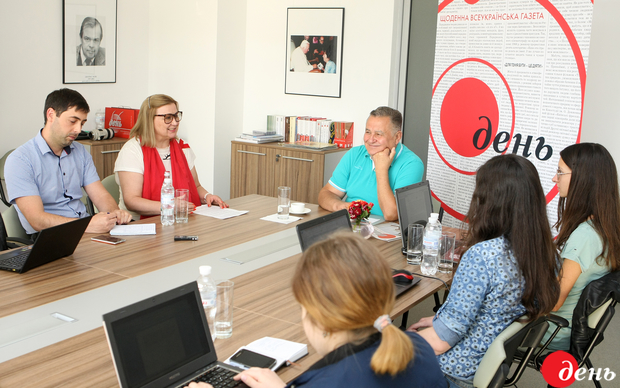
“This is a multifaceted subject. But I think there were enough possibilities to block the first phase. Yes, Russia could seize Crimea militarily by storm. But this would have been a thing of a different quality – a direct military aggression with corresponding international-law consequences.
“The Donbas also showed all the signs of seizure. Besides, a Donetsk resident told me in private call that two former children’s camps near Donetsk were full of civilians aged 30 to 40 and dressed almost in the same way, who were seen obeying their commanders’ orders. There were also other signs of a disguised aggression. I said about this on television, but border guards said it was quiet on the border and accused me of causing panic with a hypothetic war in the Donbas.
“I must say frankly that the military and political leadership was not fully aware of what effective measures should be taken. But the logic of further events was clear to many experts. There were three ‘panic-mongers’: SBU ex-chairman Ihor Smeshko, Admiral Ihor Kabanenko, and I. We warned about this. Some people must have thought at the time that the course of Donbas events could be reversed by some political mechanisms, but, much to our regret, this did not happen.
“There was no military assault as such at the beginning, although it was clear that special units were behind this. That was just the time for resolute actions. Naturally, it would not have been easy, for the territory, which had been quite neglected from the viewpoint of communication with the populace, was also under the heavy ‘fire’ of Russian propaganda. Moreover, there was a stereotype in the Donbas: no matter what kind of a person Yanukovych is, he is still ‘our guy.’
“Those who do not like to hear it said that it was possible to reverse the course of events in the Donbas are the people who were responsible for failure to do so. There was no need of any extraordinary military units. It is said that the army was in a mess, but the entire army did not need to be involved at that initial stage. When this dangerous process was beginning, even one brigade was enough.
“When the annexation of Crimea began, I asked publicly: ‘Three of our brigades, 1,600 men in each, saw action in Iraq – they are all volunteers, well-equipped, well-trained, and experienced. Where are they?’ It is almost 5,000 combat-ready, strong, dynamic, and skillful soldiers. Moreover, they went through very similar events because in Iraq our military had to control a destabilized region almost as large as the Donbas and to stay, at first, among a not-so-friendly population. Those who opposed them were not a ‘militia’ but the disbanded troops of Saddam Hussein.
“Incidentally, one of the brigade’s deputy commanders was Viktor Muzhenko, now Chief of the General Staff of the Ukrainian Armed Forces. In my view, the current fault-finding campaign against him is unfair. He is a highly-professional classical officer with good experience. It should be taken into account that he is facing a powerful military machine that saw action in two Chechen campaigns. And military commanders on that side are in no way young militiamen or amateurs, and the troops are commanded not by young State Duma members via television but by experienced, professional, and highly-motivated field commanders. And, besides, war is not always victory. This is a stern reality. In my view, the main thing is that politicians should not hamper him and directly interfere in the command chain. Very few are aware that being a serviceman is a very difficult and in a way unique profession.”
Tetiana LITVINCHUK, Taras Shevchenko National University of Kyiv:
“Two SBU ex-chairmen have already visited the Summer School, including Ihor Smeshko who was critical of Valentyn Nalyvaichenko. What do you think about the SBU’s performance in the past one a half years? Have there been any positive or negative changes?”
Ye.M.: “I have an approach of my own: as a former SBU chief, I once told myself that would not criticize my successors because this office is always important and must always be criticized. For you can never say that the SBU head has always done everything very well, has never been mistaken, or has warded off a danger by a hundred percent. It is a never-ending struggle against a sinister, experienced, covert, and now overt, enemy.
“As the problem of state security is of paramount importance, society must know exactly whether or not the SBU is at its proper place. Nalyvaichenko assumed office for a second time when there was almost nobody there. A considerable part of those who remained behind had to be not only filtrated, but also detained for working for Russia. We are now talking about the SBU, but from 2010 on, under Yanukovych, this organization ceased to be a security service of Ukraine. I don’t know how long it took Nalyvaichenko to restore at least something, and he obviously did not want to take on people ‘from the street.’ They took on more than one dozen Maidan guys, but it is utterly impossible to learn and become a specialist in this matter at once. It takes years to do so. Naturally, he did not succeed in everything, and there is nothing dramatic in this. And was everything ideal when Smeshko or I were the chief? Everybody had a historical moment or circumstances of his own, and so it is not so easy to assess somebody at a distance.
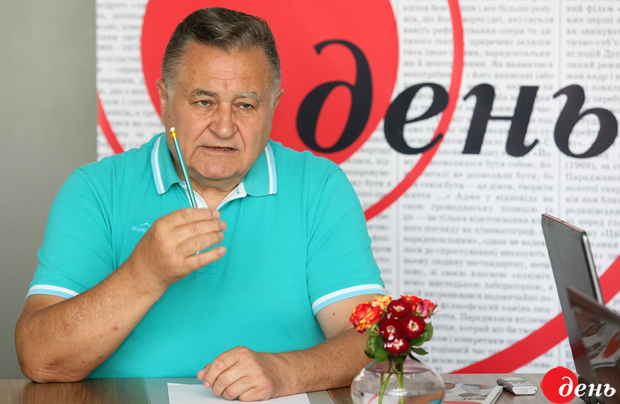
“The most important thing today is to establish a powerful counterintelligence and viable corruption-control structures. For major European institutions will not adequately cooperate with us due to rampant corruption. I think we are now going through a stage, when we have to learn fast and make proper portfolio-distribution decisions. To be more exact, politicians must not directly interfere into the activities of the Ministry of Defense, the Interior Ministry, border guards, etc. When we were in Iraq and some MPs decided to visit and check our brigade, I categorically forbade doing so and, as a result, had a six-month ‘war’ with parliament. Politicians must understand that they must not directly intrude into the activities of a military entity.
“The uniformed services are a specific entity, on which the future of the state depends, especially in our times. Therefore, politicians should, above all, be farsighted in order to provide professional, job-placement, financial, logistical, and international legal support for these structures. And the direct control of the uniformed services is a prerogative of the president who is responsible for state security.
“It is good that the SBU is now introducing contest-based employment, which will promote professionalism. It is not easy for this service now. Its new head, Vasyl Hrytsak, is an experienced professional, but he is facing very many serious problems. Today, the SBU is, on the one hand, a warring party in the literal sense of the word and, on the other, the No.1 object for penetration by special services of foreign states, particularly Russia. Besides, it is now a time when the SBU has to tackle the problems that are in principle out of its competence. It is a wartime requirement.”
Ivan KAPSAMUN: “I would like to talk of an alternative. On the one hand, we have an external enemy who constantly keeps us ‘in tonus,’ and, on the other, our society comes across an internal enemy in the shape of a government that is not addressing problems, including that of corruption. Where is society to seek an alternative in these difficult conditions – especially after so many deaths on the Maidan and in the east?”
Ye.M.: “Undoubtedly, society must seek an alternative in itself only. I think the media should also make sufficient efforts to bring about necessary changes in the state and society. I would call it ‘enlightenment’ of the people. There are very many people who can be easily cheated in the elections. To a large extent, this is connected with poverty, which politicians cash in on very well. Therefore, we need both public and political enlightenment, which is hard work of both a military and non-military nature. The newspaper Den can well share its ample experience in this.
“It would be a good idea if the topmost officials – the president, the prime minister, the parliament speaker, and some other – gave a public account of what they have done in a certain period. Although this is not envisioned in the Constitution, why not carry out an experiment in our critical time? Naturally, some topics, especially of international nature, should not be disclosed to the public, but all that concerns the domestic policy should be on the table. Society must know and understand why this and no other decision has been made.
“But, on the other hand, I think that the journalist community might rally together and force the authorities to report more often. There should be explanation of the logic of the decisions made as well as admission and explanation of the causes of erroneous decisions, especially the analysis of failures. This will not affect the prestige – of course, if the number of such mistakes diminishes, not increases.”

